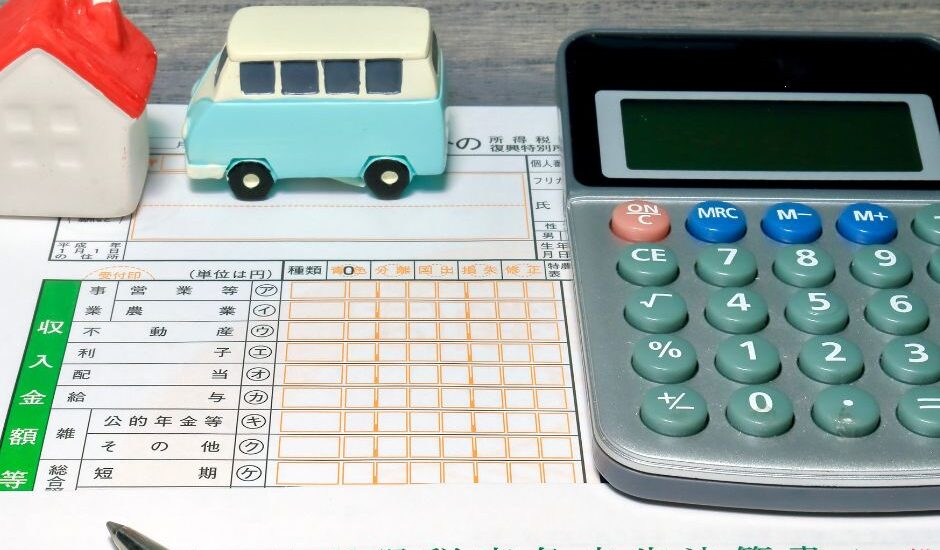If you are a foreigner living in Japan, you are required by law to pay a resident tax or 住民 税 Juminzei to the municipality you are living in. Here’s a complete guide to filing, understanding the computation, and paying the tax to avoid complications during your stay in the country.

What is the resident tax?
Juminzei, also known as residence tax or inhabitant tax, is the general term for the tax imposed on foreign residents who have an address in Japan as of January 1 of each year and who receive compensation or salary for work. The tax is paid to the municipality they are registered in.
The tax helps cover the costs of administrative services the local government provides to the residents. It is divided into two parts: the prefectural resident’s tax and the city/town/village resident’s tax, although an individual only gets one total amount to pay.
How is resident tax computed?
In general, juminzei is based on your taxable income (earned over ¥1,000,000/calendar year) from the previous year. Therefore, if you just moved into Japan, you will not be taxed until January 1 of the following year if you remain in the country.
You will still need to pay the tax should you move out of the country after January 1 (of the next year) before the bill arrives, as long as you fit the taxable income category. In this case, you must appoint a tax representative (someone who resides in Japan) to complete the procedure for you.
As an example, Tokyo’s 23 wards compute their juminzei as:
– 4% of taxable income and ¥2,500 for prefectural resident tax (県民税 kenminzei, or 都民税 tominzei)
– 6% of taxable income and ¥3,500 for municipal inhabitant tax (市町村民税 shichousonminzei)
For reference, someone who works full-time, earning around 220,000 a month (less taxes and deductions), the total resident tax is around ¥115,000/year.
In addition to the computation above, your prefecture and/or municipality might add to the total tax for disaster prevention measures (total ¥6,000 for Tokyo 23 wards). Upon moving into your city, it is recommended to inquire how the resident tax is computed.

Two types of payment methods for resident tax
There are two ways to pay the resident tax, one is through special collection, which is for employees under a full-time contract with companies. The tax is grouped with other payables, and the employer or company must pay the total on the employee’s behalf. The amount is then deducted from the employee’s monthly salary.
The other method is ordinary collection, which is for those who work multiple jobs or part-time jobs, are self-employed, or are currently unemployed. The bill will arrive at your registered mailbox around June. The amount can be paid in a lump sum or divided into four payments (every two months in June, August, October, and January). The payment slip can be paid at a post office, bank, convenience store, or some online payment systems like PayPay.
If you resign from work, your tax payment method will switch from special to ordinary collection, so keep in mind to process the necessary paperwork to change your tax payment status.
Who are exempt from the resident tax?
Those whose income from the previous year is lower than the exemption limit (¥1,000,000/calendar year) or those who fall in the category of a tax treaty (e.g., “US-Japan Income Tax Treaty: a bilateral agreement between the two countries that eliminates double taxation on income earned by individuals and businesses in both countries) will quality for resident tax exemption or reduction.
It is important to note that there are prescribed procedures for qualifying for exemption or reduction, which usually start from an income tax exemption or reduction.
Furthermore, if you are paying through the ordinary collection, you might be required to file for a resident tax return. Failure to file for resident tax returns can lead to your tax exemptions being canceled or your tax exemption certificate not being issued. This can also result in an increase in the premiums you need to pay for services based on individual municipal tax like the national health insurance.

Those who need to file a resident tax return are:
– Those who filed an income tax return, plus their dependent relatives
– Those whose only source of income is their salary, which is subject to year-end adjustments, plus their dependent relatives
– Those whose only source of income is from public pension less than ¥1.05 million (aged 65 and below) or less than ¥1.550 million (aged 65 and above)
More information on resident tax returns should be readily available at your municipality’s official website or tax office.
If you are new to living in Japan, hopefully, the guide above helped prepare you for the resident tax, which is one of the two most important tax considerations, the other being income tax.



